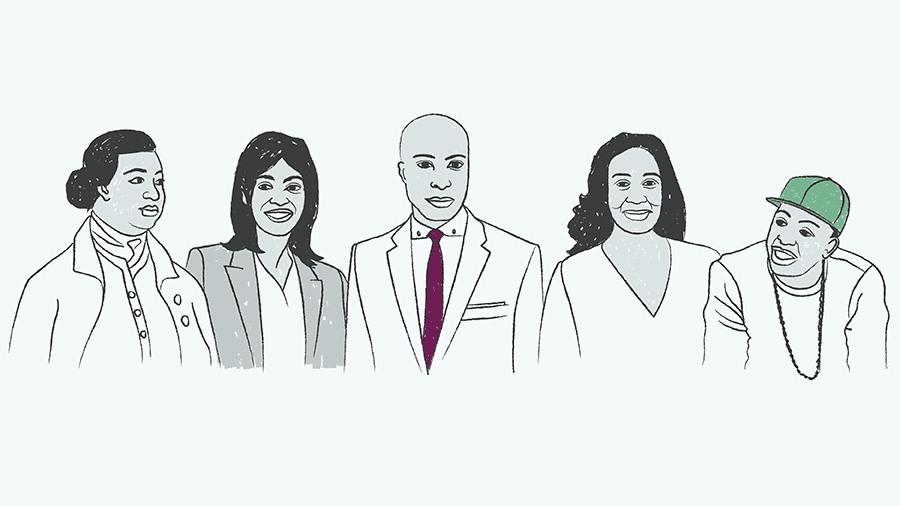
In 2021, something unusual happened – a fact made the news!
This fact was one that most people in the headhunting world could have told you: there were at the time precisely zero black CEOs, CFOs or chairs of FTSE 100 companies.
Progress has been made, according to the recent Parker Review, with 96% of FTSE 100 firms now having at least one minority ethnic board member. Yet the initial consensus is that there seem to be a higher proportion of a number of Asian communities on Boards than is the case of Black communities.
As a business that prides itself on its work in improving diversity and that is also diversely owned, a couple of things have struck us about the current status quo.
Firstly, there is no easy fix. The problem of underrepresentation runs far deeper than the C-Suite, which means that the solution needs to as well.
As a senior black leader at a large multinational recently put it to me, “building a representative C-Suite will probably take 15 years, not 15 months, so strategies need to be in pace at every level of the talent pipeline to improve the chance of that happening.”
The second is that despite the renewed respect and admiration for those black leaders who have broken barriers and risen to the top, we can’t help wondering how many more there could have been if the work to make organisations and society more inclusive had begun in earnest earlier.
I can’t profess that I have the answer to this particular challenge. As a CEO, search professional, consultant and believer in the benefit of diverse thinking, I will always strive to drive diverse and differentiated shortlists but I need your help.
How?
- Make representation, role modelling and visible aspiration not tokenism but important. Nobody wants to be the woman, LGBTQ or Black person on the board – they want to be there because they deserve it
- Get started today on your strategies for increasing the number of diverse people at every level of your business – the unfortunate sausage maker paradigm is important
- Once you have recruited people with potential, help them to rise up the ranks not by positive discrimination but by teaching them the ropes, providing opportunities to grow through meritocracy and achievement and helping them to understand when they get it wrong
Whilst there is much more to improving diversity at the top of business – with all the benefits that will bring – than simply celebrating leaders, it’s also true that role models matter.
So here are five Britons we’d like to dip our cap to, this Black Leaders Awareness Day.
Ignatius Sancho
While we’re mostly looking at contemporary leaders, Ignatius Sancho deserves a far higher profile than he gets. Born on a slave ship in the Atlantic, he spent his early life as a servant in England, teaching himself to read before becoming a man of independent means – as a well-connected writer, composer, and owner of a fashionable London grocer.
A persuasive communicator in the face of hostility, Sancho became a highly influential abolitionist, who had the distinction of being both the first black Briton to vote in a general election and to have an obituary published in the press.
Sharon White
White has achieved a rare feat, reaching the highest levels of the public sector – as permanent secretary to the Treasury and later CEO of Ofcom – before doing the same in the private sector.
She took on the role of chair of the John Lewis Partnership just before the pandemic hit. Since then, she has demonstrated a combination of diplomacy and boldness, pivoting towards home retail and letting go of the firm’s famous ‘Never Knowingly Undersold’ price-matching promise.
Ozwald Boateng
Boateng shook up the somewhat fusty world of early 1990s tailoring in his 20s, becoming the first black man to open a Savile Row shop, and the first tailor to feature at Paris Fashion Week. Later, he became the first black designer to lead a major house, becoming creative director for Givenchy’s menswear in 2003.
Being a serial pioneer required tremendous vision and self-belief, but in Boateng’s case also came with self-awareness. “I knew that my being on Savile Row and having shows in Paris had cultural implications. And to have the right impact, you can’t shout, you have to just do it by being present,” he told the UAE’s The National. “I positioned myself just as a creative who happened to be black. I took that position to say, what’s the big deal?”
Karen Blackett
Ad industry highflyer Blackett rose to prominence in media planning before becoming CEO of MediaCom in 2011. She later became CEO of Group M, before being named president of parent company and FTSE 100 stalwart WPP in September 2022.
Her inspirational style – helped no doubt by her earlier career as a leadership coach – has seen her become the first business woman to top the Powerlist of the UK’s most influential people of African or Caribbean descent.
Jamal Edwards
Like most entrepreneurs, the late Jamal Edwards had a knack for spotting opportunities, but like the best of them he also had the skill for spotting talent. A YouTube pioneer, he is credited with launching the careers of British musical luminaries ranging from Ed Sheeran and Jessie J to Stormzy.
His channel SBTV reached over one million subscribers, though before his untimely death in early 2022 Edwards also expanded into fashion, directing and philanthropy focused on young leaders and mental health.
















